If you want to find the key differences while comparing alternator vs generator, first you need to know what they are. In this article from Linquip, we’ll briefly introduce alternators and generators and then we’ll compare these two to clarify their difference. Many people know that they are used to generate electricity, but they don’t know the difference between them. Do you know how they differ from each other? Continue reading this article to find the answer to this question.
Linquip has all the information you need about alternators and generators based on your application. If you have questions or concerns about alternators or generators, please feel free to contact Linquip. You can learn more about these industrial devices and equipment by visiting Linquip and reading the article “What Is Power Generation?“.
You can join Linquip as an Expert by registering on the platform. Linquip will provide you with all the advantages of registering. Furthermore, do you wish to have a guest post appearing on the site? For the Linquip guest content submission option, just click here.
How We Write This Blog Post about Alternator vs Generator
When writing a blog post about Alternator vs Generator, we first gather information from our own experiences and knowledge about the topic. We then consult with our experts in the field to ensure that the information we present is accurate and up to date. We also conduct extensive research by searching multiple web pages and sources to gather as much information as possible. Once we have all the necessary information, we organize it in a clear and concise manner, making sure to highlight the key differences between alternators and generators. Throughout the writing process, we strive to maintain a high level of expertise, authoritativeness, and trustworthiness to provide our readers with the most accurate and reliable information on the topic.
What is an Alternator?
An alternator as we already mentioned above, is a system that generates electricity. What it does is turning mechanical energy into electricity as an AC (also known as alternating current). A magnet in an alternator rotates, creating a current to distribute energy and that’s how you get electricity from such generators.
The magnetic pole of the rotor is excited by the direct field current. When the rotor rotates, the magnetic flux cut the stator conductor, and hence EMF induces in them. As the magnetic pole alternating rotating N and S, they induce an EMF and current in the armature conductor which first rotates in a clockwise direction and then in an anti-clockwise direction. Thus, generates the alternating current.
What is a Generator?
Just like an alternator, a generator can also convert mechanical energy into electrical energy. But when it comes to alternator vs generator, you should know that generators are capable of producing both AC and DC. You can either get a direct current or an alternating current from generators. A rotor inside the generator rotates and the rotation of this rotor builds up electricity, creating a magnetic field, resulting in the creation of the needed energy to spin the armature.
The generator has a rectangle rotating coil which is rotating in the magnetic field around its axis. The magnetic field is provided by either a permanent magnet or an electromagnet. The ends of the coil are joined by two slip rings. The slip ring collects the current induced in the coil and transfers it to external load resistance R. The rotating coil is called armature which is made of copper.
Alternator vs Generator
Although the outcome of the alternator and generator is somehow the same (they both provide electrical energy and one of them also provides direct current), there are, in fact, a few important technical differences between them that make each of them unique for specific applications.
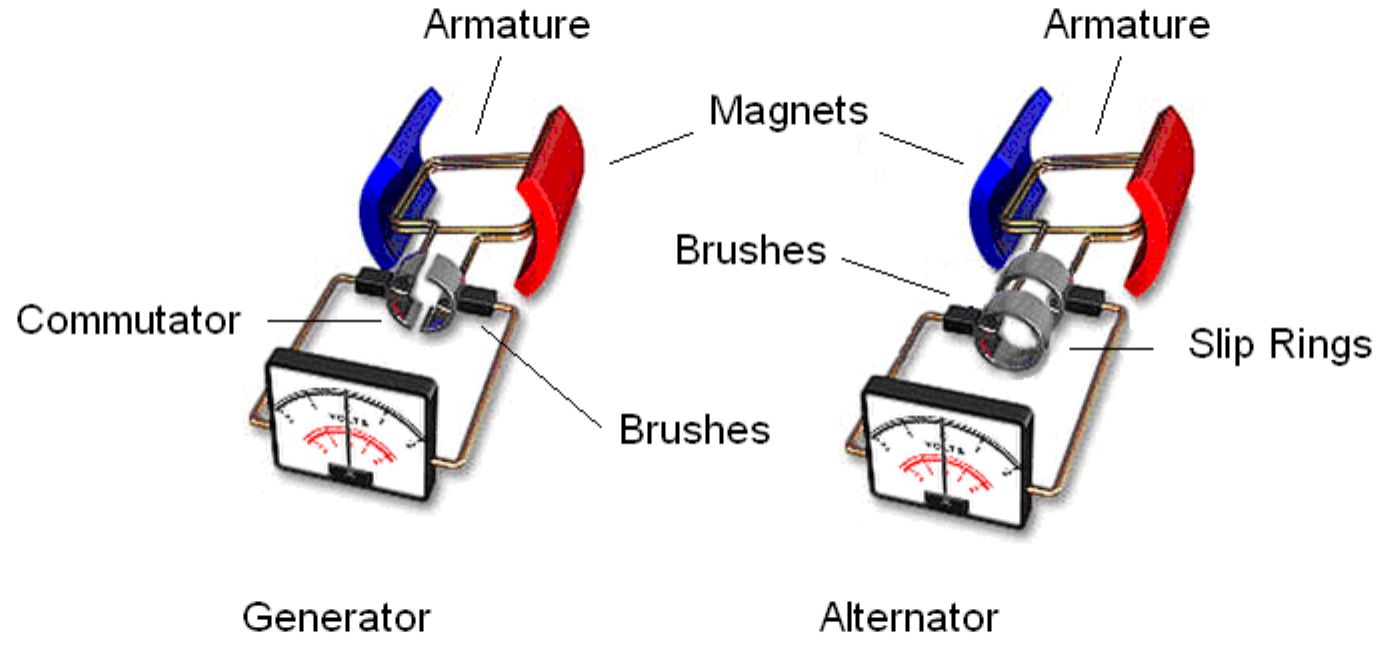
Unlike generators, an alternator cannot charge a drained battery. This is important because if you try to charge a drained battery with an alternator, it may cause safety issues and even result in the explosion of the battery.
As we already mentioned, an alternator only provides AC, but a generator generates both AC and DC. So, if you need DC, your only choice between alternator vs generator would be a generator. With every half rotation of the rotor, the current’s direction changes, causing the alternating current. The circuit’s ends are directly connected to the load for getting the produced AC. And when it comes to direct current or DC, these ends of the wire should be connected to the commutator which converts AC to DC.
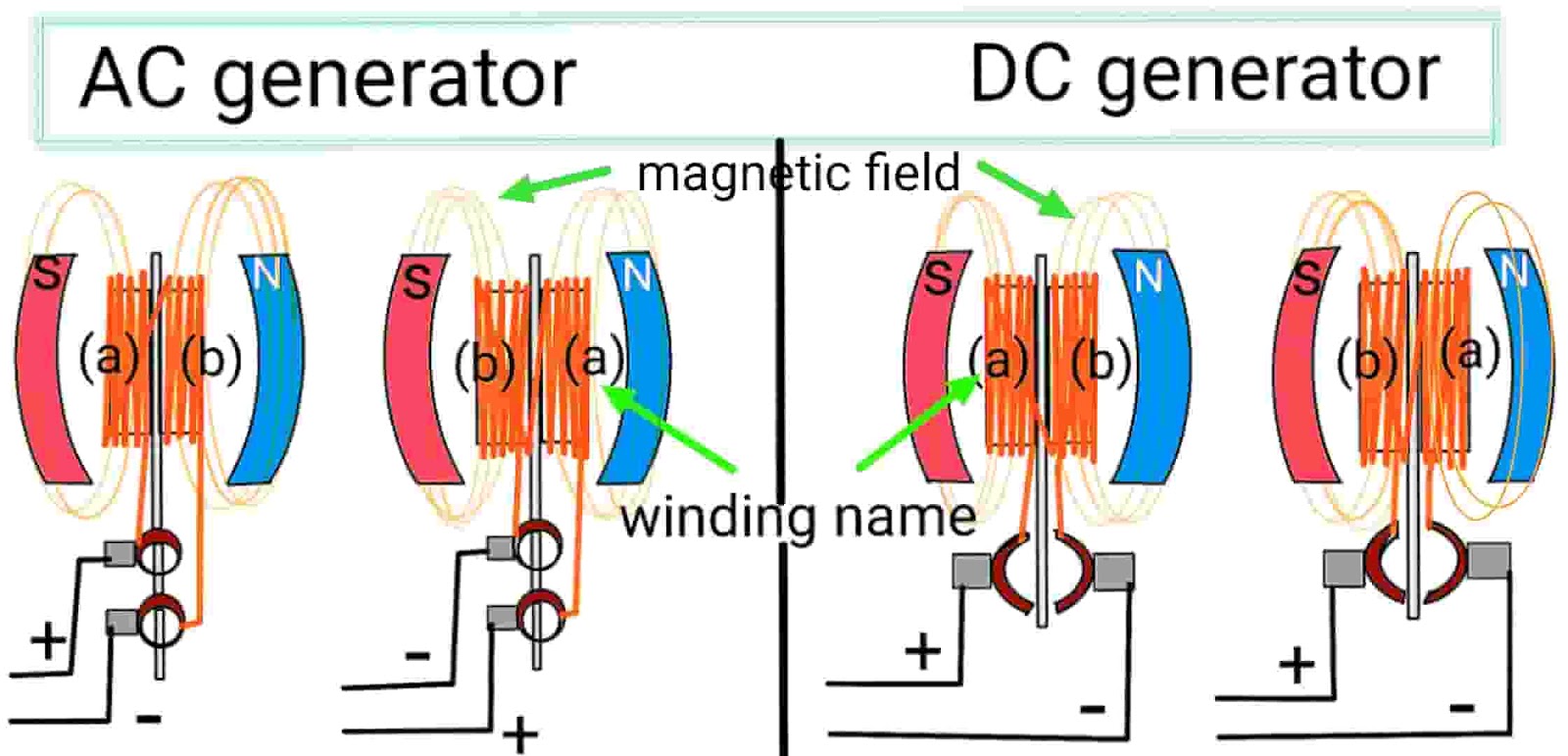
Alternator and generator are also different in size. Alternators are usually much smaller than generators. This difference in size enables the alternators to fit into smaller spaces, while generators usually require large spaces.
Another difference between alternator and generator is in their interior design. While generators have a stationary magnetic field, alternators produce a rotating one.
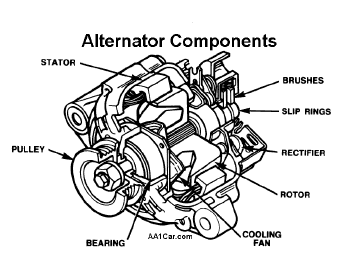
An additional generator and alternator difference is that in commercial electric power plants and also vehicles, many prefer to use alternators because of their mechanical simplicity. But keep in mind that generators make up this lack by providing multiple services. You can easily use them as a DC motor. How? By applying power to the shaft. And removing the shaft results in acting as a generator. If you want an alternator to convert AC to DC, you’ll need extra circuitry which complicates the design.
The energy supplier of an alternator is its stator, while the supplier of a generator is its rotor.
One more generator alternator difference is that alternators use only the required amount of energy and thus, it conserves more energy. While generators use all the energy that is produced and so, they conserve less energy.
An extra generator alternator difference is that polarization is not required in the case of alternators. But generators need to be polarized after installation.
Another difference between alternator vs generator is that generators have lower output compared to alternators.
A further generator and alternator difference is in their power generation method. It should be mentioned that the alternator’s power generation method is much more efficient than a generator. They both use the principle of Faraday law of electromagnetic induction for their final purposes. But a magnetic field in an alternator is spun inside a winding of wires, while in a generator, it is a winding of wires spinning inside a magnetic field, resulting in the creation of a current. The method of alternators enables them to operate at a higher speed! They are also capable of producing more power at lower speeds.
Another difference between alternator and generator is that the alternator is to used to produce small-scale electricity or used as a charging system for automobiles, and generators are used to produce large-scale electricity.
If you are still not sure which one to choose between alternator vs generator, then you should know that alternators are more reliable than generators! One of the reasons is that the brushes in generators wear more quickly because they use split rings and the brushes should rub against the break in them. This is not the case with alternators since they use solid rings, resulting in less wear and tear.
In alternator vs generator comparison, alternators can especially win when transformers step foot in the game! They only work with alternators since they can easily step up or down the voltage provided by an alternator.
Another important item in alternator vs generator is about their RPM range. RPM is short for Rotation Per Minute. Alternators have a wide range of RPM, and I think you can guess by now that the RPM of the generators falls into the narrow range category.
It’s good to know that the armature of the generators is rotary but the armature in an alternator is stationary. This is another point you should mention while comparing these two.
One last thing to mention about the alternator vs generator comparison is their EMF. While the alternator’s EMF is variable, in the case of the output voltage of the generator, this factor is constant.
Advantage of Alternator vs Generator
Alternators have some benefits over generators which are as follows.
- Higher output
- Lower weight and smaller size
- Less maintenance
- Higher output: When comparing alternator vs generator, one of the benefits of an alternator is that its parts are more robust than what you’ll find in a generator. This lets them rotate more quickly without the risk of causing damage. The higher rotation speed means an alternator can generate more power overall. It also means an alternator can produce more power at lower speeds so you can get a charge even when a vehicle is idling.
- Lower weight and smaller size: An alternator is a more compact way of generating electricity, which has two distinct benefits. First, this yields noticeable weight-savings over generators. A lighter car means better fuel economy, which helps you keep more money in your pocket. Second, it’s smaller, which makes it easier to fit into an already crowded engine compartment and makes the space easier to work in when the time for maintenance and repairs arises.
- Less maintenance: Both alternator and generator have a system of rings and brushes to generate electricity, but the designs of these components are different. Generators use split rings, while alternators use solid rings. The brushes in both rub against these rings.
As mentioned earlier, the brushes in a generator wear more quickly as they rub against the splits in the rings. The smooth rings of an alternator don’t cause the same issue. So the alternator requires less overall maintenance which is an advantage of alternator vs generator.
Is an Alternator Capable of Charging a Dead Battery?
An alternator’s purpose is to maintain the charge of a battery, not to recharge it. Charging a dead battery using an alternator will cause the alternator to fail prematurely.
That was everything you needed to know about alternator vs generator. Now you can easily understand why they are not used instead of each other. They do create the same results, but their application and their internal construction are different. Comment below and let us know what you think about these two and their differences. And if you have any questions about generators or alternators, feel free to sign up on Linquip and we will help you right away!
Download Alternator vs. Generator PDF
This article is available as a PDF for download so that you can access it at any time.
Buy Equipment or Ask for a Service
By using Linquip RFQ Service, you can expect to receive quotations from various suppliers across multiple industries and regions.
Click Here to Request a Quotation From Suppliers and Service Providers
Read More on Linquip
- Alternator Slip Rings: discover the basic purpose and other detailed forms
- What Is a Generator? A Comprehensive Explanation of Working Principle, Types, and Components
- Alternator Construction and Design
- Parts of DC Generator: Explanation of Parts, Working, Types, Advantages & Disadvantages
- Types of Alternator: Features, Advantages, and Vast Usage
- A Simple Guide to the Difference Between Motor and Generator
- A Clear Classification of AC Generators
- Working Principle of Diesel Generator + Diagram
- Working Principle of AC Generator
- The Best Diesel Generator
- What is an Induction Generator? An Ultimate Guide
- A Clear Classification of DC Generators
- What are The Electric Generator Parts?
- Best Portable Generators: Everything You Need to Know
- What is the Working Principle of DC Generator?
- What Is a Generator? A Comprehensive Explanation of Working Principle, Types, and Components
- What Does an Alternator Do?
- Signs of a Bad Alternator
- Alternator Function: The Complete and Easy to Understand Guide to How Alternators Work
- Difference between single phase and three phase generators: An ultimate guide
- Alternator Construction and Design
- Parts of DC Generator: Explanation of Parts, Working, Types, Advantages & Disadvantages
- Difference between AC and DC generators: An easy to understand guide

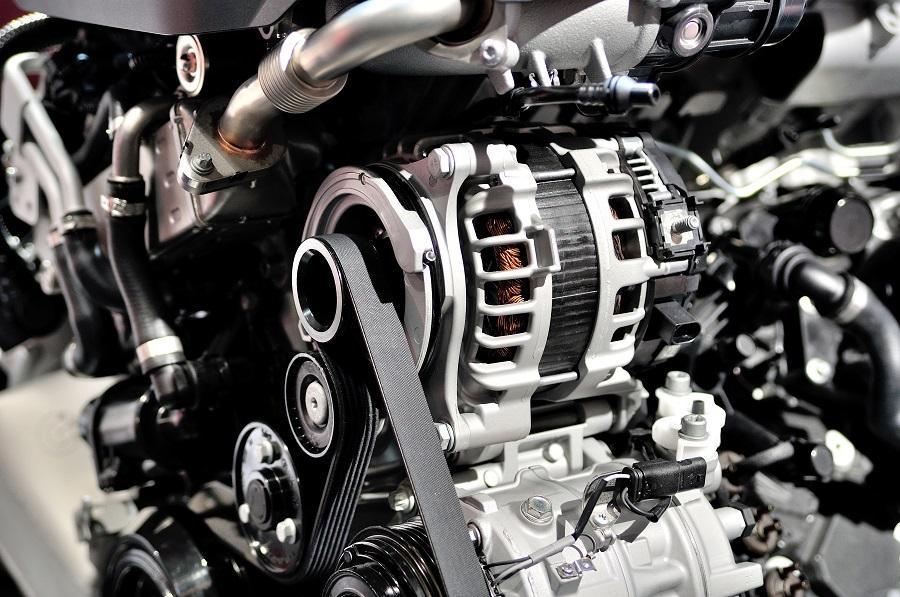
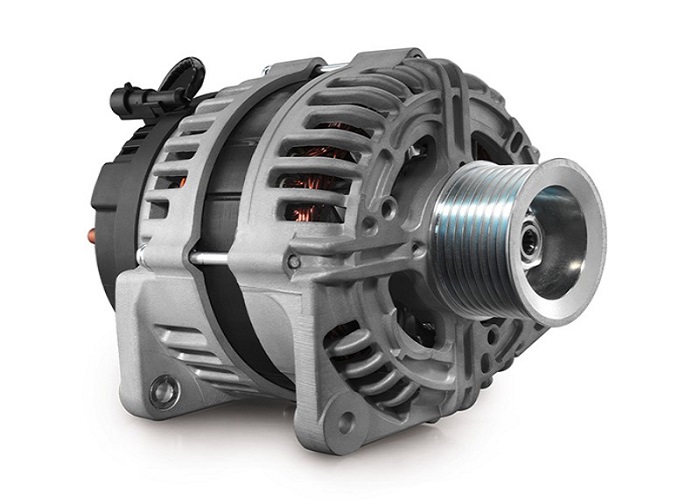




Hi I am looking for a LOW RANGE 30 KVA ALTENATOR
You Can Find it Here : https://www.linquip.com/equipment?q=alternator
Thank you so much for taking the time to leave us this review. To determine how we can provide you with your desirable alternator, please give us a call at +1(408) 524-1582
The article is good reading and gives clarity to the difference between an alternator and a generator.I think it should have mentioned that an alternators current can be converted into direct current with a rectifier.It only says other equipment. Still I enjoyed the article and did learn more about the two devices.DS
Thank you for reading my article carefully
And thank you for the point you made
In this case can I use alternator to design a wind mind
wish you luck
And you’re not reading my post it’s too late the b**** made you stupider I’m no mechanic I’m no electrician but one thing I do know from owning a car for f****** 20 years. The one thing I do know about alternators from owning a car again like I said for 20 years and I know this only because my mechanics have advised me it while they’re installing it in front of me is that alternators can’t won’t need to be modified to AC or DC because they don’t come as one alternators really come both currents simultaneously because of distributor on the engine is direct current the radio inside the car is alternating current so furthermore that lets you know that an alternator in a vehicle puts out both DC and AC current you might want to go back to school and learn what electricity is and can do cuz your article is making people stupider.